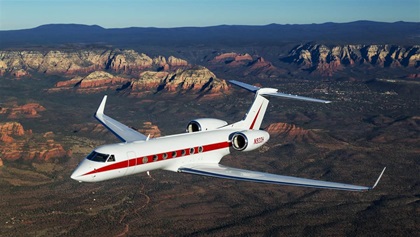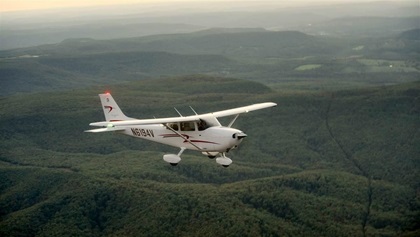Career: Decisions, decisions
These are the four main types of corporate flying
Corporate aviation is aviation’s miscellaneous category. If it isn’t the airlines or a special mission such as pipeline patrol, it can be considered corporate. That brings lots of benefits in terms of flexibility to job seekers, but it also can be an overwhelming hodgepodge of opportunities that are difficult to sift through.

Corporate flying jobs range from the occasional and unpredictable jump in an owner’s Cessna 172 to a set schedule of worldwide flying in a Gulfstream. Because these jobs are in pursuit of a company’s operation, the flying is as varied as the country’s business ecosystem. That said, there are four broad categories of corporate jobs that employ most pilots.
Contract
Imagine having complete flexibility over your schedule, your lifestyle, and your work. This is contract flying. Pilots flying on contract get to pick and choose their trips, the companies they fly for, where they live, and the types of airplanes they fly. It’s a life that offers complete freedom. You are your own boss and you contract your flying services to whoever may need them.
Pros:
- Flexible schedule.
- Live where you want.
- Work as much or as little as you want.
- Pick who you fly for and what you fly.
Cons:
- Prepare to spend countless hours finding work and following up on billing.
- May have to pay for your own training.
- No steady income.
Fractional
 With the advent of fractional aircraft ownership came the establishment of professional operations that bridged a gap between the airlines and corporate flying. Imagine the standardization, professionalism, and set schedule of the airlines but flying completely in the world of general aviation with its varied destinations and cutting-edge airplanes. It’s no wonder the fractional operators have been able to poach pilots from the airlines. Pilots may fly a schedule such as a week on, week off, carrying fractional shareholders wherever they need to go. While fairly predictable, it also guarantees a large amount of time away from home.
With the advent of fractional aircraft ownership came the establishment of professional operations that bridged a gap between the airlines and corporate flying. Imagine the standardization, professionalism, and set schedule of the airlines but flying completely in the world of general aviation with its varied destinations and cutting-edge airplanes. It’s no wonder the fractional operators have been able to poach pilots from the airlines. Pilots may fly a schedule such as a week on, week off, carrying fractional shareholders wherever they need to go. While fairly predictable, it also guarantees a large amount of time away from home.
Pros:
- Great airplanes.
- Steady and attractive income.
- Set schedule.
- Ability to live anywhere and commute.
Cons:
- Lots of guaranteed time away from home.
- Stiff competition for top jobs.
Charter
Charter flying is a mix of all types of different aircraft flying for all types of different companies. Governed by Part 135 of the regulations, a charter operator can take people where they want to go, when they want to go there. That can make life challenging as a pilot. Some companies may employ enough pilots that you will have a set schedule of days on and off, a steady salary, and some predictability to your life. But for most it means being always on call, being paid a day rate on top of a base rate, and never knowing what the day will bring. The biggest advantage to charter flying is that many airports in the country, be they large urban hubs or small country strips, have some type of charter operation. That means you can live where you want and not have to worry about commuting.
Pros:
- Live where you choose.
- Every day is new. New destinations, new schedules, new people.
Cons:
- Every day is new. Unpredictable schedules.
- Some operators are bottom feeders with poor equipment and high expectations.
Traditional
 A traditional operation of a company-owned aircraft, flown by an experienced crew, is what most people think of when you say corporate flying—and what many pilots aspire to. The airplanes can vary from small, single-engine piston to large business jet. Your experience and the market will dictate where you end up on that scale. Schedules vary depending on the operation. A traditional company-owned jet may fly only Monday through Friday, but a personally owned turboprop might be used mostly on the weekends to go to vacation destinations.
A traditional operation of a company-owned aircraft, flown by an experienced crew, is what most people think of when you say corporate flying—and what many pilots aspire to. The airplanes can vary from small, single-engine piston to large business jet. Your experience and the market will dictate where you end up on that scale. Schedules vary depending on the operation. A traditional company-owned jet may fly only Monday through Friday, but a personally owned turboprop might be used mostly on the weekends to go to vacation destinations.
Pros:
- Lots of operators means being able to find one that fits your needs.
- Most corporate aircraft are well maintained.
- Interesting destinations.
- Normally somewhat predictable schedules with advance notice of trips.
Cons:
- Prepare to take on additional duties, such as aircraft management.
- Local jobs may be limited.
- Smaller operators have limited growth potential.
- A company’s airplanes are often the first thing to go in an economic downturn.



